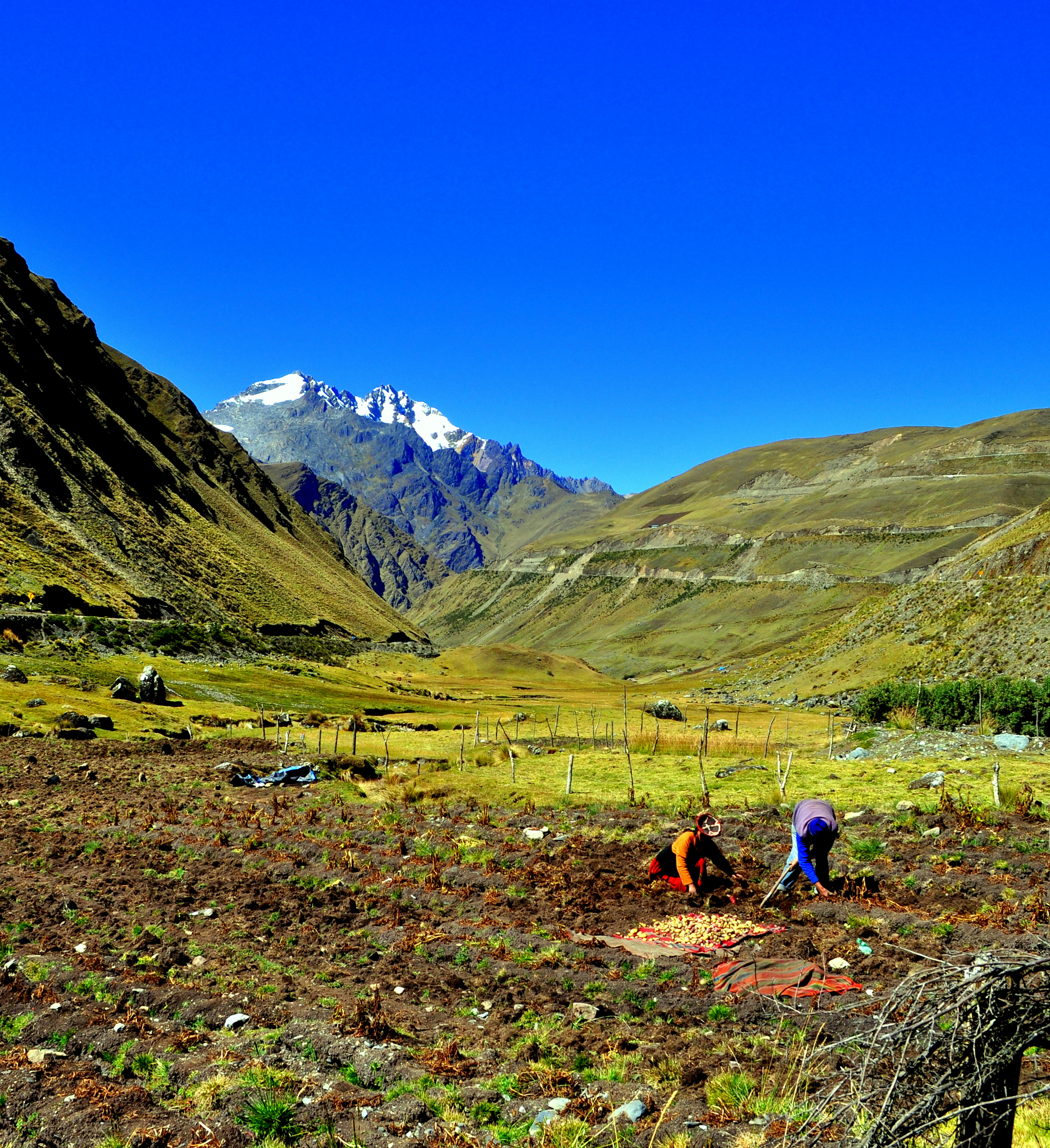Greetings from Cusco, Perú mis amigos de FES! I am in here to conduct research, though what that entails exactly becomes less and less clear every day. In New Haven, I was so ready to spout off my plans for summer – “I’m going to do research in the Andes of Peru, studying communities that are part of a joint conservation and development project implemented by a local agency. I want to compare the interactions between the local organization and the native communities to literature that focuses on the downfalls of international conservation and development projects.” I don’t even know what that means anymore. Or more specifically, I don’t know how to translate what I’m doing on the ground here into some kind of academic analysis.
I’ve already had the setbacks that second years and professors guaranteed I would have. I planned on being in the native communities outside of Cusco early last week. But here I am, still in the city. I planned on staying in the communities for close to a month (three communities, one month each). Alas, it is potato harvest season and the people in the communities are less than interested in wasting precious time answering my silly questions. My attempts to explain that I want to work along with them in the fields are met with laughter. My dependence on ECOAN (the local conservation organization that is implementing the project) to connect with the communities has eliminated my illusion that my research is independent or that I will be seen as independent by the people in the communities. To top it off, it appears my Spanish won’t do the trick. I need to know Quechua. So, I will have a translator. That’s not so bad except that the translator is to be the president of the community. There is no denying that will affect the answers I receive from members of the community.
My goodness, I make it sound as if my situation is dire. It’s not. I’m actually enjoying myself immensely. People at FES (Sarah Marlay, Pablo Peña, Vrinda Manglik, Mona Wang, etc.) who told me that Peruvians are lovely people were right. Every single individual I’ve encountered – taxi drivers, waiters, housemates, ECOAN staff, cashiers, old men asking for money — has been “muy amable.” My setbacks in research have forced me to expand my focus. Now I’ll be visiting Lima in July to attend a meeting between ECOAN and their donors. I have the sweetest housemates a girl could ask for and I get to spend every evening with them chatting in Spanish, helping them with English, and learning the slang of Cusco. I’ve gotten to visit five communities in the Sacred Valley, soaking in views of 20,000+ foot glaciers, colorful potatoes, women in traditional Quechua clothing, and adorable lambs, piglets and crias (baby llamas). And I am happy to say that on May 31, I’ll be heading to Abra Malaga – my first extended stay in a community.
I’m beyond excited. I’m also terrified. I’ve gotten comfortable in Cusco — maybe too comfortable: many people have told me that I need to be cautious not to offend anyone. The people of Alba Malagra are very conservative and do not appreciate slights to their culture or life. Obviously, I have no intention of being rude. Hopefully, I won’t be rude unintentionally. Abra Malaga is the most traditional community I will be visiting and the most remote. The homes, built of stone and reeds, are scattered across mountains ranging from 11,000 to 16,000 feet. Most people only speak Quechua and their main livelihood is growing potatoes and caring for livestock (in contrast to other communities where many people work for tourist companies). They are the first community to become involved in the ECOAN Polylepis conservation project which they have participated in for over 10 years. When we visited the community last week, everyone was busy harvesting potatoes; too busy to spend much time talking with us as we passed through. Soon enough, I will see how they will interact with me and how my connection with ECOAN and association with the president of the community (as my guide and translator) impact these interactions. I’ll get a taste for how my interview questions work in practice. I will also get to hike around a beautiful, mountainous area (and feel the effects on my lungs and head) and practice my limited landscape photography skills. Truly, I am tremendously lucky. I’m sure my next blog post will be filled with highly entertaining anecdotes and potentially some “deep” analysis – that’s the hope at least.
